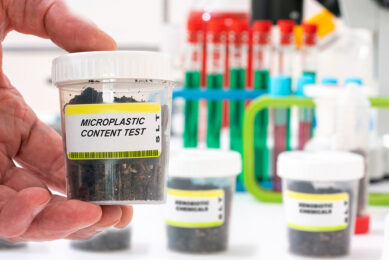Omega-3 cattle diet benefits consumers

Cows fed a diet rich in omega-3 produce enriched meat that has significant benefits for consumers, suggests new research from Kansas State University.
The new research, published in the journal Nutrition Research, suggests that
raising cattle on flaxseed diet (10%), rich in alpha-linolenic acid, leads to
increases in the omega-3 content of the meat, which could then be passed on to
the consumer.
Boosting levels in animal-derived produce is seen by some as
having potential in bridging the gap between recommended and actual intake in
the modern population.
The researchers compared flaxseed-fed cattle and
corn-fed cattle and found omega-3 fatty acids levels in the cooked beef was
double in the flaxseed-fed animals than that found in their corn-fed
counterparts (83 versus 44 milligrams per 100 grams). The researchers then fed
20 rats either a diet containing beef from the flaxseed-fed cattle or beef from
the corn-fed cattle for five weeks.
Healthier test
animals
They report a statistically significant increase in the
amount of DHA in the livers of the rats fed the omega-3-enriched beef diet
compared to controls (168 versus 67 nanomoles per 100 grams, respectively). Rats
fed the omega-3-enriched beef diet also had significantly lower heart levels of
arachidonic acid (AA), compared to controls (81 versus 164 nanomoles per 100
grams, respectively). AA is metabolised to produce prostaglandin E2, a
pro-inflammatory compound. Rats fed the omega-3-enriched beef diet were reported
to have significantly lower blood cholesterol levels, relative to controls,
wrote Medeiros – 77 versus 107 mg/100 mL, respectively.
Entire food chain
The study showed that improving the
nutritional quality of beef, in this case omega-3 fatty acids, by simply
changing a part of the cattle’s diet is possible. In human terms, two 85 grams
(three ounce) servings of beef a day would provide a daily omega-3 dose of 140
mg. “It would appear to be important to try and improve the omega-3 fatty acid
content of the entire food supply when possible to help reach this goal,” said
the researchers.
Related website:
Kansas State
University
To
receive the AllAboutFeed newsletter click here.











